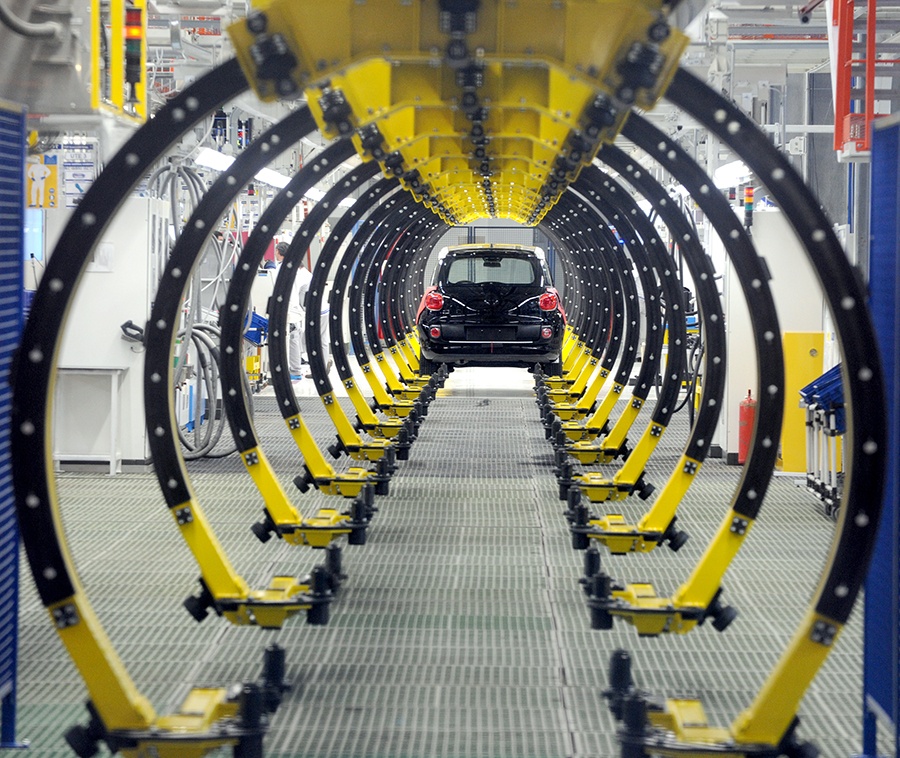Topics: Automotive, manufacturing, Industry

As pioneers of lean manufacturing, Toyota is known worldwide for their streamlined manufacturing process. But when the financial crisis of 2008 hit, the auto giant recorded their first loss ($1.7 billion) in their 75+ year history. During this time, Volkswagen Group’s began implementation of its MQB (Modular Transversal Toolkit) platform. For many in the industry, the German automaker’s simplified manufacturing process appeared set to overtake Toyota in production and sales. But after years of several years overcapacity and high fixed costs, Toyota’s engineers have unveiled a new process in the hopes of reestablishing themselves as the world’s lead manufacturing powerhouse.
Thanks to technological innovation, automobile production is exponentially more complicated when compared to the assembly line days of Henry Ford. In response to the increasingly complex automobile manufacturing process, Volkswagen came up with their MQB, or Modular Transversal (translated from the German Modularer Querbaukasten) Toolkit. The company's transverse, front-wheel drive cars share the same components in different modular configurations.
The MQB system's “matrix” of standardized components reduces the variety of manufacturing processes and number of facilities required to assemble each model. In turn, it increases efficiency, cuts costs, and reduces the time it takes to build a car by 30%.
Earlier last year, the Japanese automaker announced plans to adopt the still relatively radical concept of modular production. They are calling it the Toyota New Global Architecture (TNGA). Part of the plan involves a $1 billion investment to build a new manufacturing plant in Central Mexico and shift production to several other North American plants.
The Mexico plant is the first ground-up project for the company since 2011. Within the TNGA ethos, Toyota claims the program will leverage its global supply chain to build smaller parts and production lines. The revamped infrastructure allows Toyota to manufacture multiple models on shared lines, enhancing its flexibility in responding to global customer demand shifts while cutting overall cost.
Sound familiar? Toyota’s response places it in an unfamiliar role in the industry: Follower. Toyota’s modular production rollout comes three years after the Volkswagen Group unveiled their process. Currently, Toyota leads Volkswagen in profits (50% more as of last year) while selling just as many vehicles (10 million). It just goes to show that teaching an old dog a new trick is possible after all.
Topics: Automotive, manufacturing, Industry
0 Comments
No video selected
Select a video type in the sidebar.







LEAVE A COMMENT